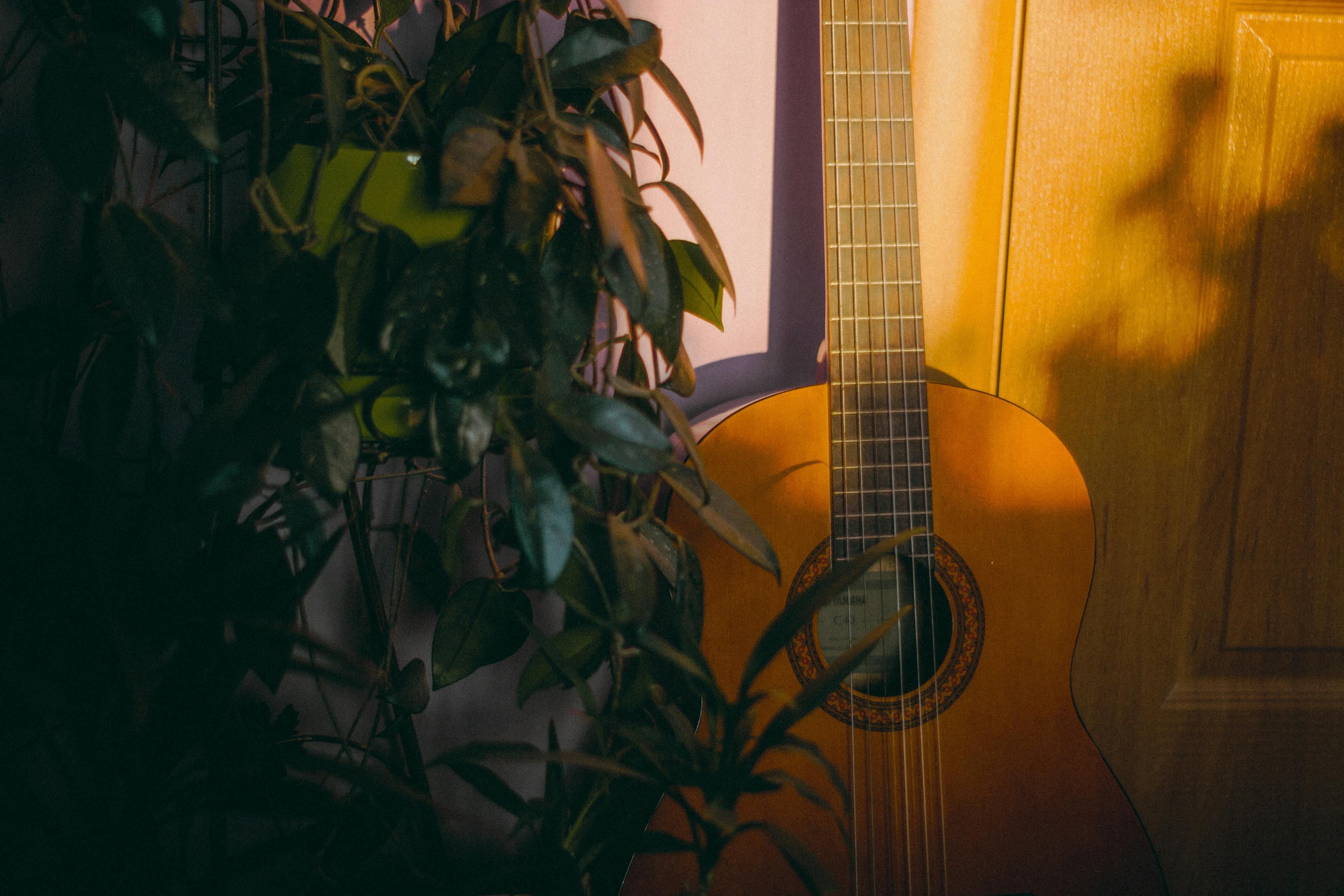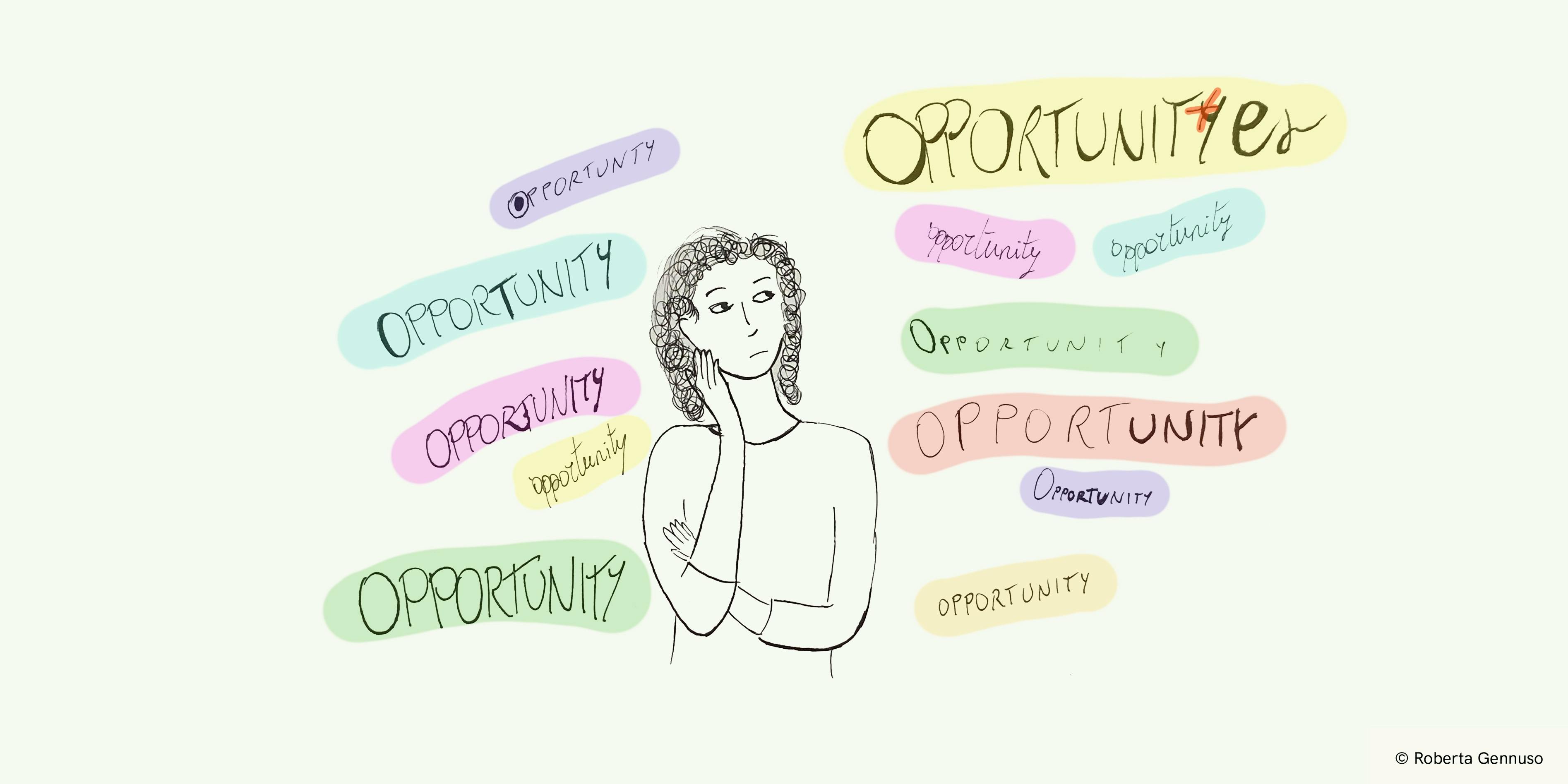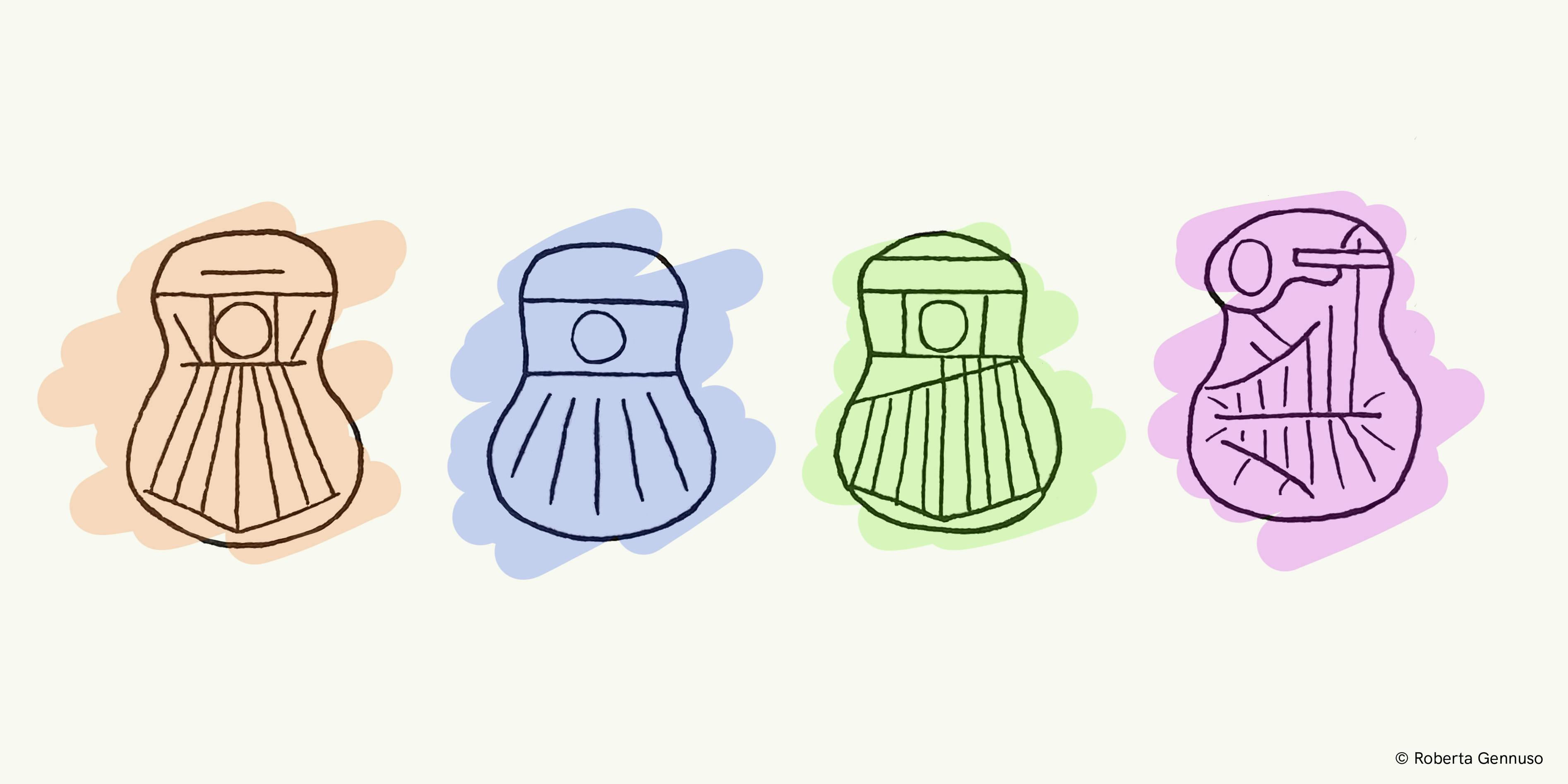4 + 1 books that changed the way I play
The books that changed my way of playing music and how to become better musicians through reading
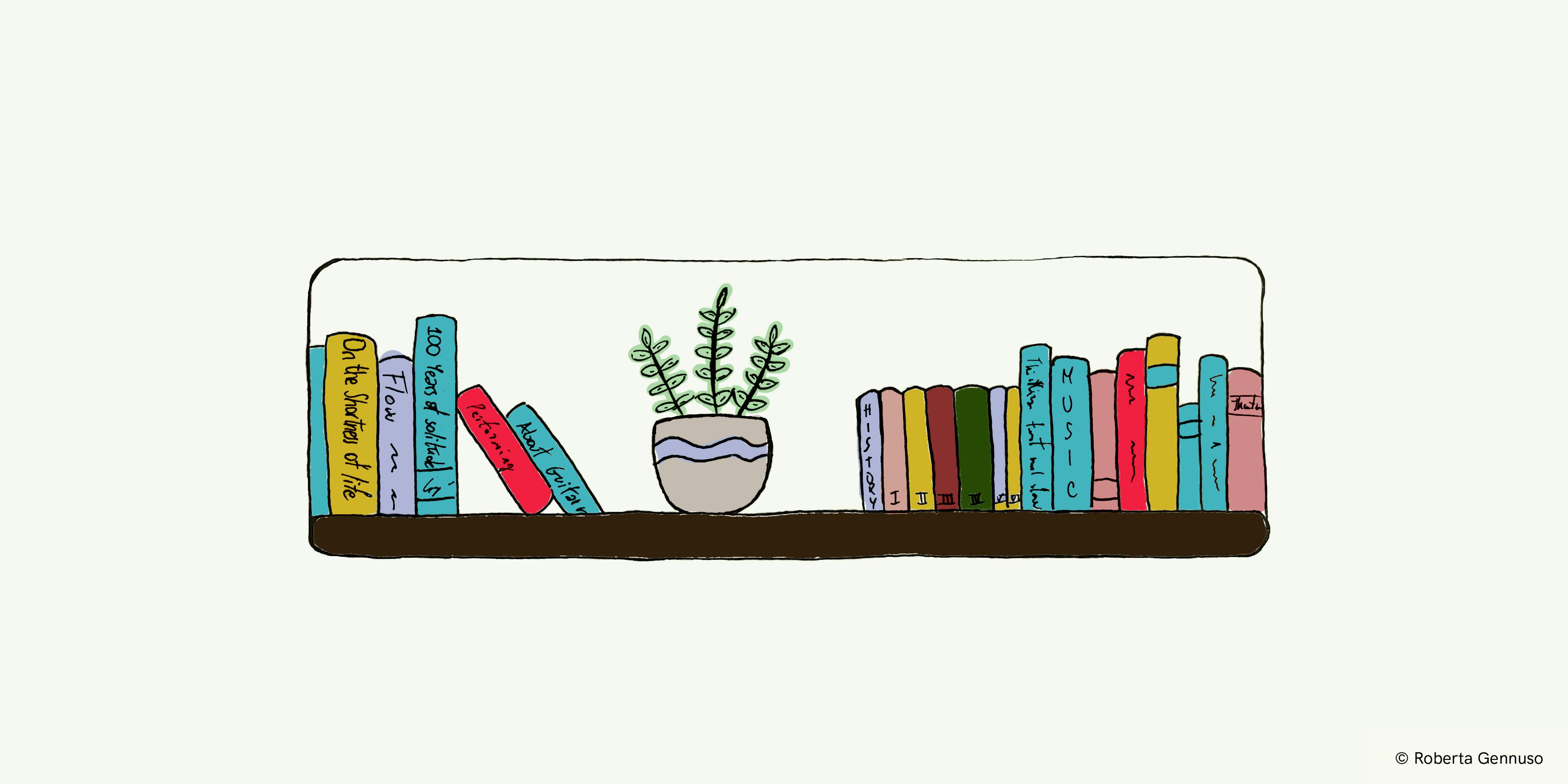
I walked through that maze of shelves filled with books three times taller than me. I was 8 years old, I remember well that first day in the library, maybe because that was the day I felt in love with reading.
A few years later I would fall hopelessly in love with music, and these two passions have always coexisted within me.
So, in this article, I will tell you the books that changed my playing and made me grow as a musician.
Practice, practice and practice, this is what we were always told to do to become better musicians, but it is not enough. With experience, I have realised that, especially in times of frustration, other activities are more important and effective than hours and hours of practice.
99% of the times when I felt stuck in my growth (I assure you it happened many times) I realised that I needed something more than just music. I needed real experiences. When i lived in Brussels, a very cosmopolitan city, I liked to try to experience every part of my daily life (such as travelling on the metro, or going to the supermarket) as an opportunity to filter everything that was in front of my eyes with my sensitivity, to empathise, absorb and understand the human being in all different situations. Every day I had experiences to translate and integrate into music. However, reading is a life experience as well.
“Who does not read, at 70 years will have lived a single life: his own! The reader will have lived 5000 years: he was there when Cain slew Abel, when Renzo married Lucia, when Leopardi admired the Infinite… because reading is a backward immortality” - Umberto Eco. Reading also has very noticeable practical benefits, the three most important ones being:
• 1 Reading trains your concentration: if you are a good reader your mind concentrates more easily; • 2 Reading makes you discover new things about how your mind works, and this can be very helpful during performance; • 3 Reading will make you more creative while practicing.
But let’s look at the books that have consolidated my philosophy of being a musician and why they have changed the way I play. (Plus one bonus tip!)
On the Shortness of Life by Seneca
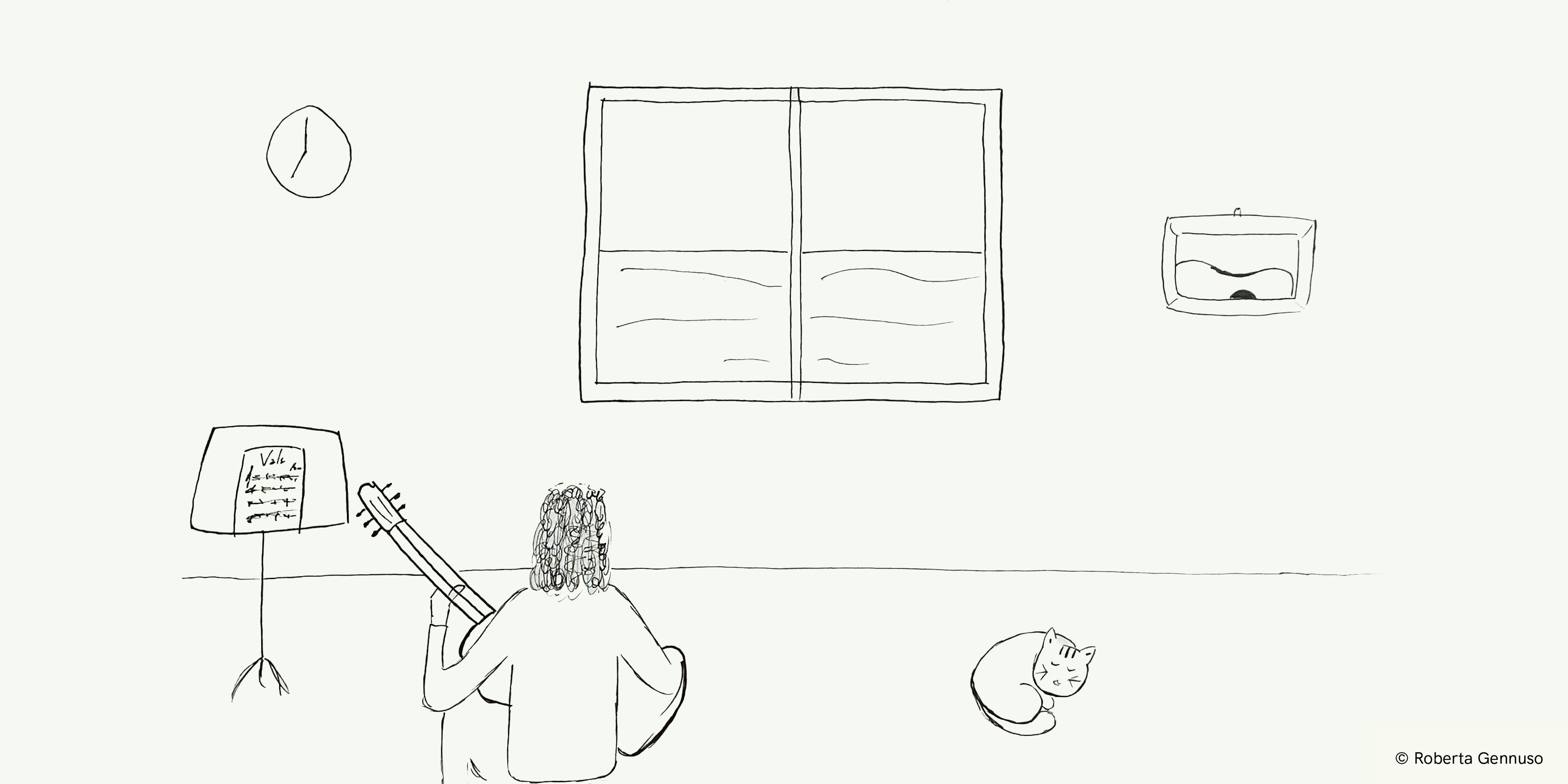
Time management is a topic that makes many people sick, and I am one of them. I have always been obsessed with planning my life, but at some point I encountered Seneca’s “On the shortness of life” and this changed my way of thinking, in a practical sense, about my days and my life. So, I took out my diary and, comparing the time I dedicate to all activities, I realised that almost every day I was doing long practice sessions (a whole afternoon or the whole morning) skipping for several consecutive weeks the moments of leisure: going out with friends, cinema and so on.
At which point I stopped and asked myself “do you really want to use all the days of your life to play?” and replied “Yes.” Ahahah just kidding! The full answer was: “yes, but I also want to laugh once in a while, have a few more friends, watch a movie etc…”.
So I did several experiments to save time but have productive study sessions and, trivially, I found that setting a study time and monitoring it (“I still have 20min!”) totally changed my approach by making me more aware and no longer lazy. But the most effective thing was to manage time based on goals, and to take breaks between each goals to make the next one successful.
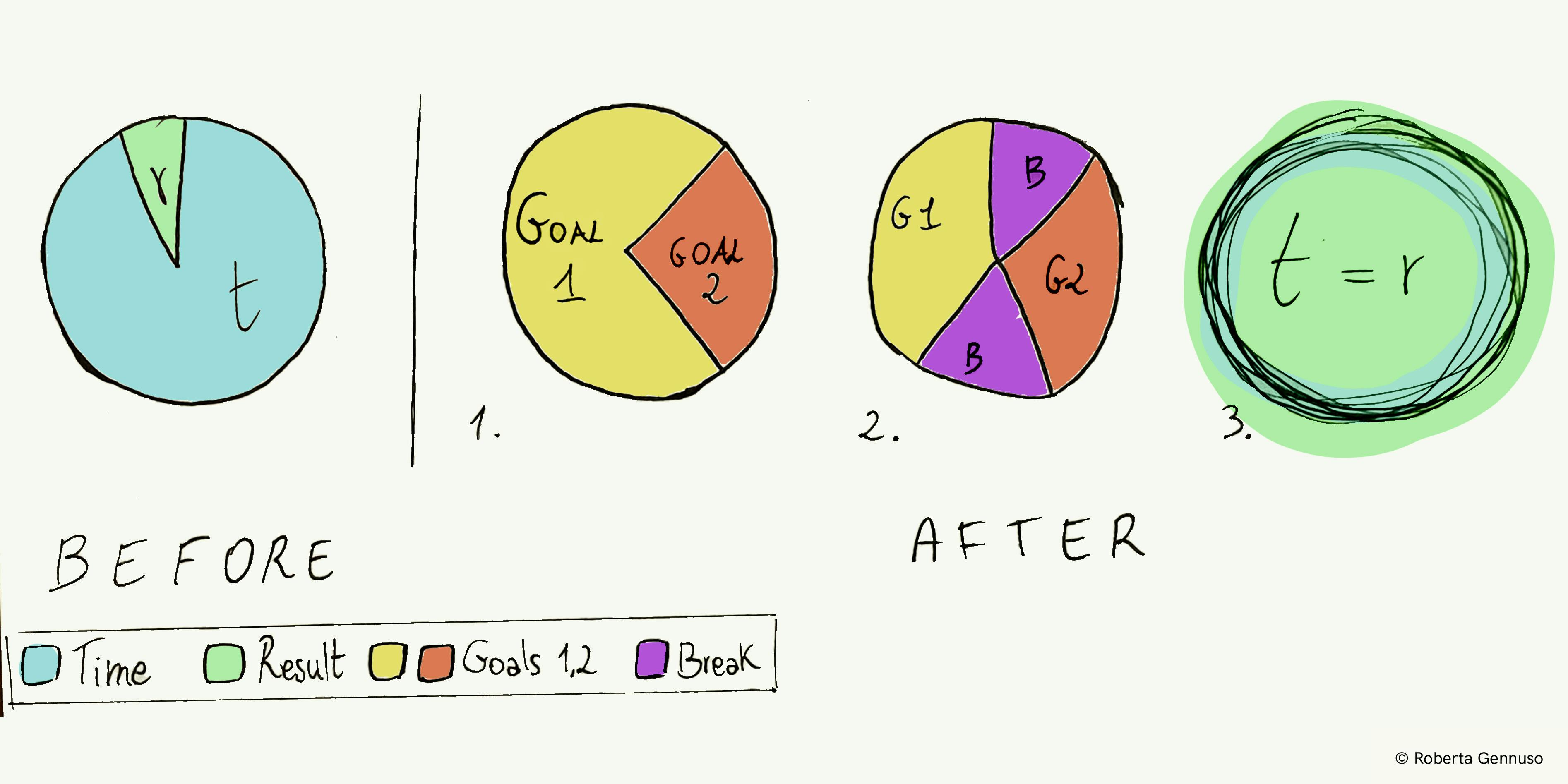
Seneca says that living means taking control of yourself: to work to reach the goals and enjoying yourself in the right way. Of course, there is much more in “On the shortness of life” and I strongly recommend you to read it. In the meantime, don’t forget to save time and put all of yourself into every single study session!
Flow by Mihály Csíkszentmihályi
Another book that changed the way I play is “Flow” by Mihály Csíkszentmihályi (Aka Mihály ctrl+v 😅).
This book made a mark on me because the author, having studied musicians, artists, athletes and surgeons, gives an explanation of the “optimal experiences” that are those I have when I play (mind you: when I play and not when I practice). These experiences, Mihály writes, are so satisfying that people would even do them at great expense, just for the mere pleasure of doing them.
I found the meaning of these words in my being deeply immersed in playing the guitar. All of us have been in the flow at least once. I remember when, with my eyes closed, I was sitting in the living room emptied by the silence of the night, my guitar in my hands, I have travelled a lot, travelled through times and spaces. I was playing Bach, I remember perfectly the first time it happened to me.
Reading Flow made me realise: I was not fantasizing with my mind, but this also happens to many people in different contexts.
That’s exactly what it is: the flow state is the TOTAL ENJOYMENT of something, when you want to do nothing more than that thing you are doing and while you are doing it you love it madly.
Only two things are essential to get to this state and have optimal experiences: •1 Free the consciousness from chaos and worries;
•2 Controlling and guiding the contents of consciousness with positive thoughts and ideas.
I admit that after reading this book, I have taken it as a kind of mantra and always consciously seek the flow state during a performance, whether it is just for me or for an audience. So, my goal is nothing other than to have an optimal experience and transmit it to the listener. The experience is more important than the performance itself.
Unfortunately, for many people, music has become a source of psychic disorder. The prospect of competition has distorted the way music is performed and many no longer experience it, rather, many musicians fall ill from the pressure and stress of crazy goals.
Instead, the concert venue is a marvellous place, there are few other occasions when people attend the same event together, with similar feelings and thoughts, drawing comfort from listening.
But there is one thing to be said about it: for non-musicians today it can be more difficult to get inner wellbeing from listening, because we are too surrounded by noise pollution. In every shop, supermarket, on the bus, it is impossible to avoid it. To me this causes a lot of suffering, but many simply develop insensitivity. Yes, it is really sad and this concerns me.
Introduction to the sociology of music by Adorno
“Introduction to the sociology of music” is one of the most important works by Theodor Adorno, german philosopher, sociologist, musicologist and musician. In this book, he talks about how the musical and cultural field has been incorporated into the industrial dynamics of production and consumerism but, what made me think more was what he says about the listeners and their various behaviors.
As a musician, it is very important to understand the audience because we are working for them. In short, we should be sure that someone likes the artistic product.
So, how many types of listeners are there? How do they behave and why do they behave in a certain way? Adorno explains this clearly.
There are six main types of listeners:
•1 The expert listener, professional musician: his is a fully conscious listening and focuses on more technical aspects;
•2 The good listener is able to follow the logic of compositions but without much knowledge (he understands the language but little or nothing of the grammar);
•3 The consumer of culture represents, according to Adorno, the first signal of the disintegration of music in contemporary society, he is the conformist who raises no questions and adapts to what society proposes;
•4 The emotional listener uses music as a soothing, as a way to relieve everyday tensions and is therefore disinterested in any listening that requires a minimum of conceptual effort. He just prefers popular music, the attentions of the cultural industry are focused on him;
•5 The resentful listener is a lover of pre-romantic music and sees Bach and Vivaldi at the apex of musical composition. There is also the jazz lover’s version of this. According to Adorno, jazz is the middle genre: better than commercial music and more immediate than classical;
•6 In the end, there is he who listens exclusively to light music as a pastime. He is the perfect model that the industry always needs. He passively listens to any song that is packaged to him through the advertising bombardment of the mass media. This is why he is the most widespread type of listener in Western society.
I chose not to have a etiquette for my audience, I am not saying I want this or that kind, I just want to move, surprise and shock as art does. Who? Anyone. Anyone who is a bit predisposed to real listening. That’s why I don’t like playing in competitive contexts where sullen people judge you (in the most unpleasant sense of the word). I believe that no one should have to experience that situation.
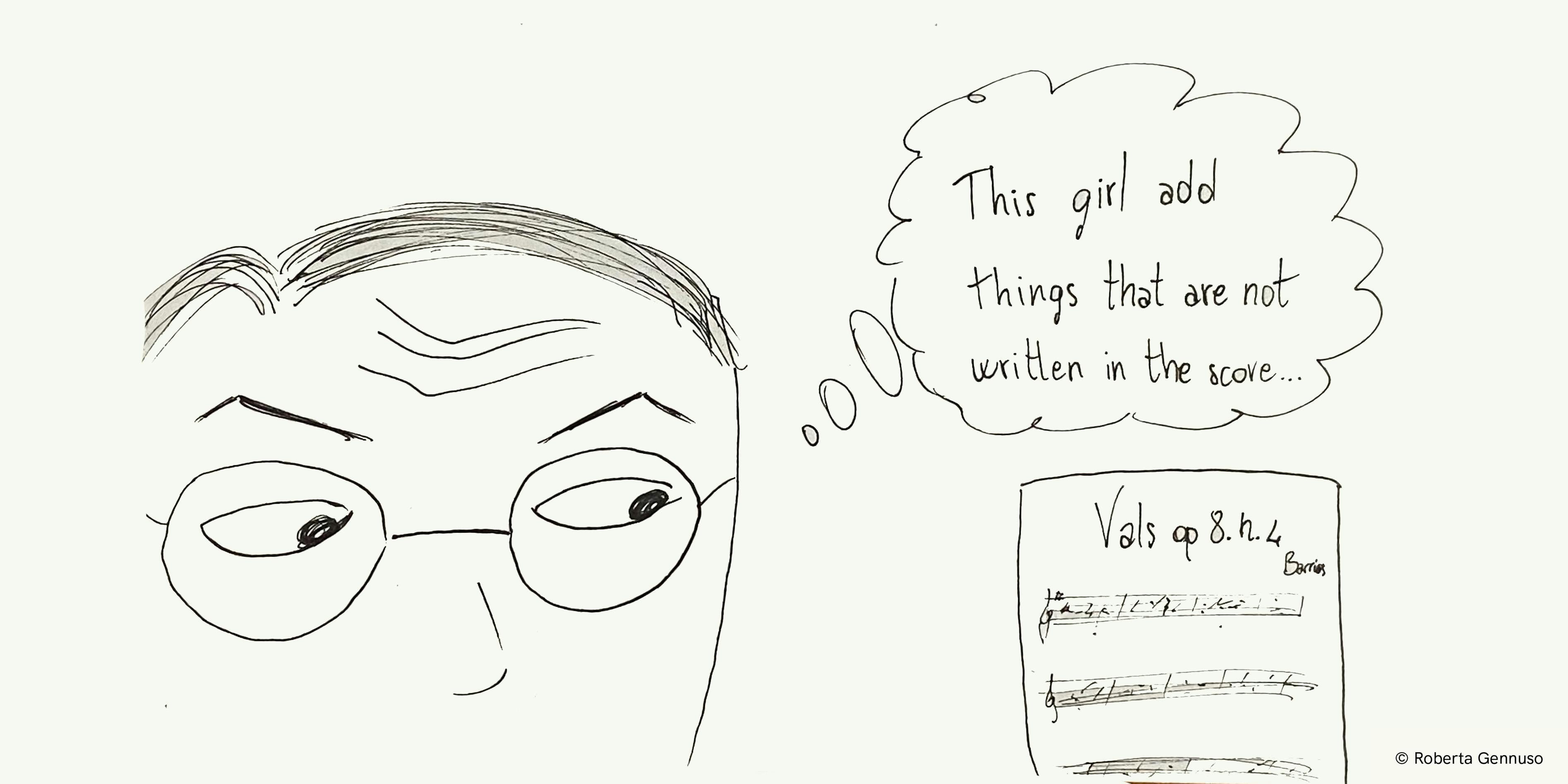
The Paper of Canoe by Barba
There was a time in my life when I was very interested in theatre and acting so I read books and watched documentaries about it. One of the most beautiful and profound books I have read is “The Paper of Canoe”.
It is obvious that there is a strong connection between theatre and music (just think of what Opera is), but I had never thought about this before. No one had made me think about it and I thought that insecurity on stage was just a problem of mine that and I had to learn to manage with time and experience. But, of course, it is not that simple.
When you study a musical instrument, nobody tells you how to perform, how to stand in front of an audience and the rules you need to know. When it goes well, they pat you on the back exclaiming “good luck! You’re great!”
Then I asked myself: but why not take advantage of actors’ techniques and rules??? It would be stupid not to. So let’s go and see what these things are, and I promise I will write an extended article about it in the future.
Entering the scene
Going on stage or simply performing, is not just any thing, there is a before and an after. There is the musician, actor, artist, on stage and the one off stage.
We don’t have a body button to “switch” and set ourselves in “performer mode”, but we have to create an imaginary one in our head and use it!
4 + 4 fundamental practical tips
Let me give you some tips that are always good, both before performing but also before practising the instrument:
•1 Eating a banana 30 minutes beforehand will give you the right amount of energy;
•2 Spend the 20 minutes before the performance as normally as possible (chatting with people, listening to something else, reading or playing with your phone);
•3 Choose your own “starting move” (can also be a “motto”) that arouses your performing or studying self;
•4 Go on stage or study as the happiest person in the world, even if you are not, faking it helps a lot.
Do not do
There are also things not to do before going to play and they are:
•1 Do not play or hold the instrument for at least 15 minutes before going on stage; •2 Don’t think about what you’re going to do, what you’re going to play, etc.; •3 Forget about insecurities: you have no insecurities; •4 Move away from anxious people if they are near you, apologize but that is not the time to get worked up.
A fundamental tool to use when playing for someone
The first fundamental tool we have when playing for someone is the gaze. We must manage it well: we must attract it, guide it without ever losing it. Until the end of the performance, we have to make sure that we never lose contact with the looks of the people in front of us.
If we break this flow, attention declines and interest fades.
Just consider that every time we change our position on stage, move or rotate, we are inviting all the spectators to follow us by changing the direction of their gazes in unison. So to keep the gaze active it is important to make fluid movements, never making sharp changes.
What we musicians usually do is: enter, nod and start looking at the instrument or our hands until the end. When you start like this, it then seems impossible to “open up” your view, to establish better communication contact and also open up to a state of creativity.
That is why it always helps to say a few words to the audience before to start.
In general, don’t forget that our body and our gaze communicate everything. If you are worried, anxious and uncomfortable, the first thing you will do is convey that to the audience. So ask yourself, what and how do you want to communicate?
BONUS: any book you love
If you think you never have time to read or that reading is not for you because you don’t get to the end of the book, I think this bonus can really help you.
In the last year I lived alone (about 3 years ago), I practiced all day, got very tired but never improved. So, at the end of every practice session I was never satisfied but just tired and also in a bad mood.
So, one day I did an experiment to improve my mood and, to have some good company, I started reading more. Do you know what happened?
I started to prioritise reading instead of guitar. After very few days, this practice became routine because the post-reading effect was almost addictive.
It happened that, after reading even just a few pages, I felt my mind refreshed and cleared, so as soon as I picked up my guitar and started reading the piece I was studying, I felt my mind focused like never before and I was able to come up with solutions to problems I had been carrying around for a long time.
Reading before practicing raised the quality of my practice so much and, we all know, better studying means playing better!
The book I was reading at the time was Gabriel Garcia Marquez’s masterpiece One Hundred Years of Solitude. Nothing challenging or difficult, simply storytelling, beautiful narrative.
My BONUS tip for you is to read any book you love (be it a thriller, mystery, fantasy, sci-fi etc…) before your practice session. I promise you will be very satisfied and happy at the end.
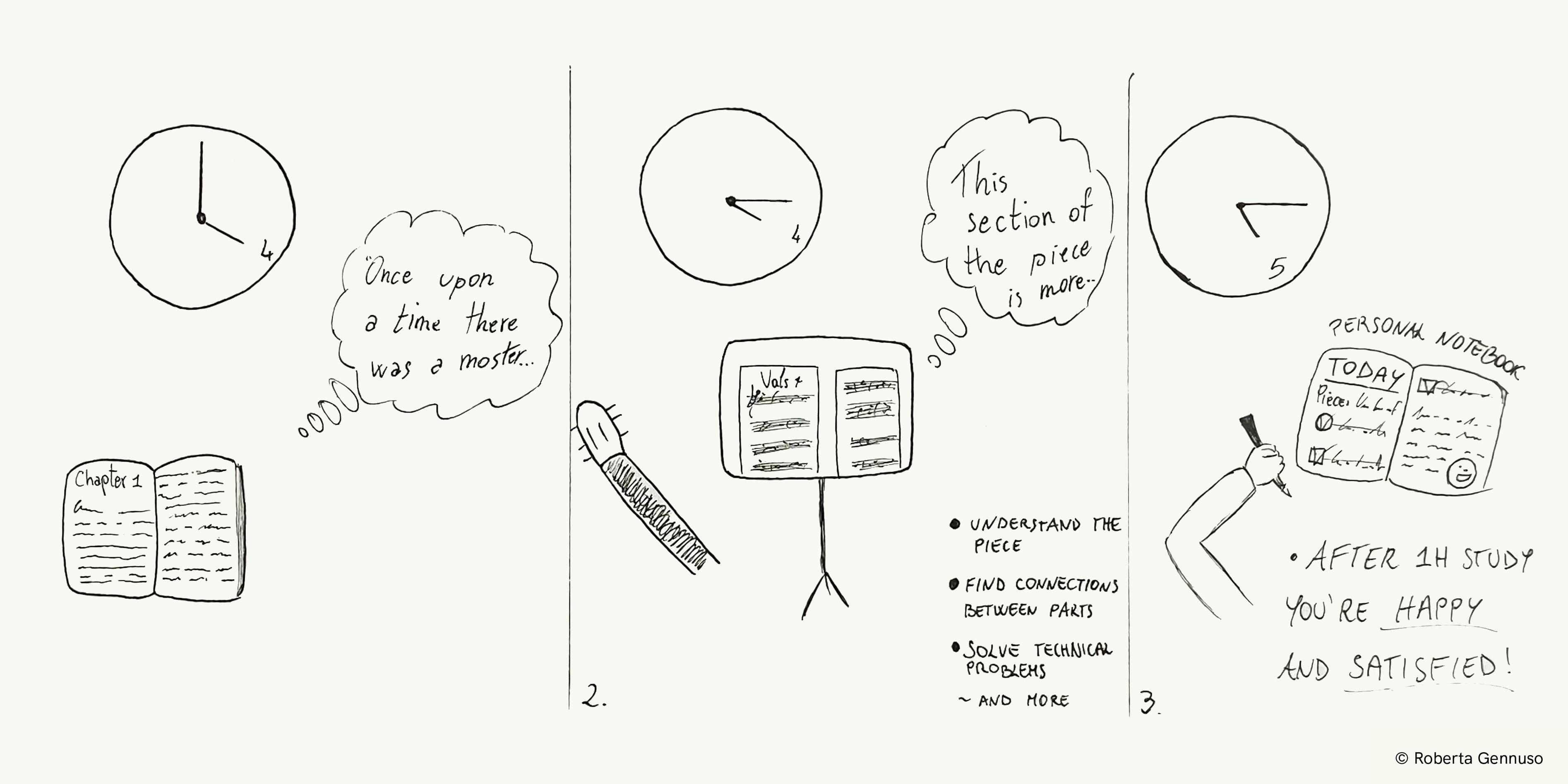
In addition, another benefit is that you self-motivate yourself to read! In fact, I used to motivate myself to read by thinking “come on Roberta, read a few pages so you can study better later!”.
I recently discovered that “Reading is the activity that promotes flow” (Flow) I didn’t know this but now I understand the effectiveness of this technique. With reading, my mind prepares for a state of flow that I reach immediately afterwards when I play the guitar.
Reading makes a better person and therefore a better musician.
I hope my experience has been useful to you and, now that you have read, you can go practice! 🙂 Roberta
